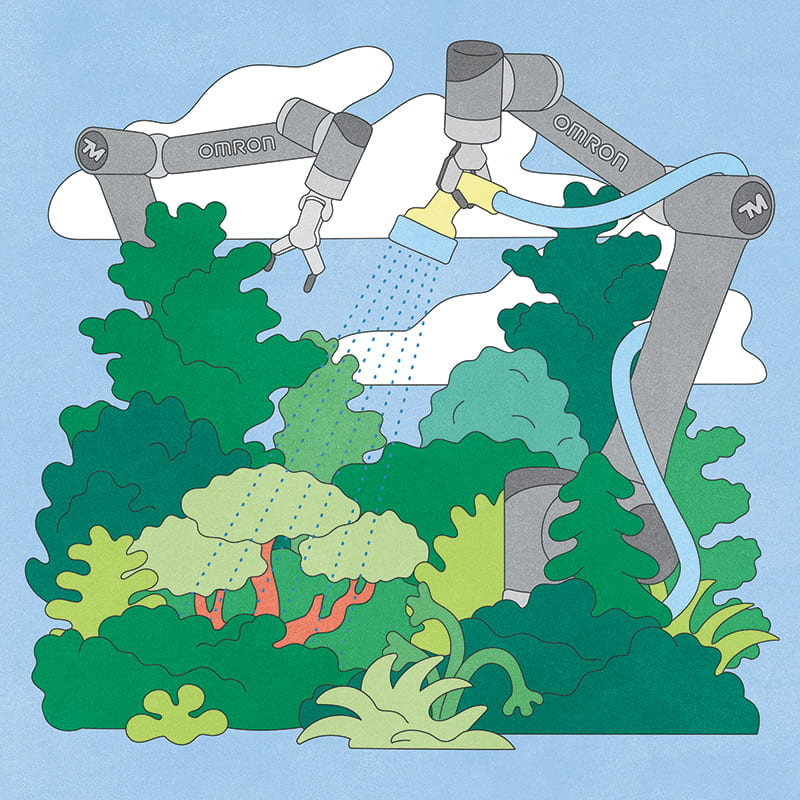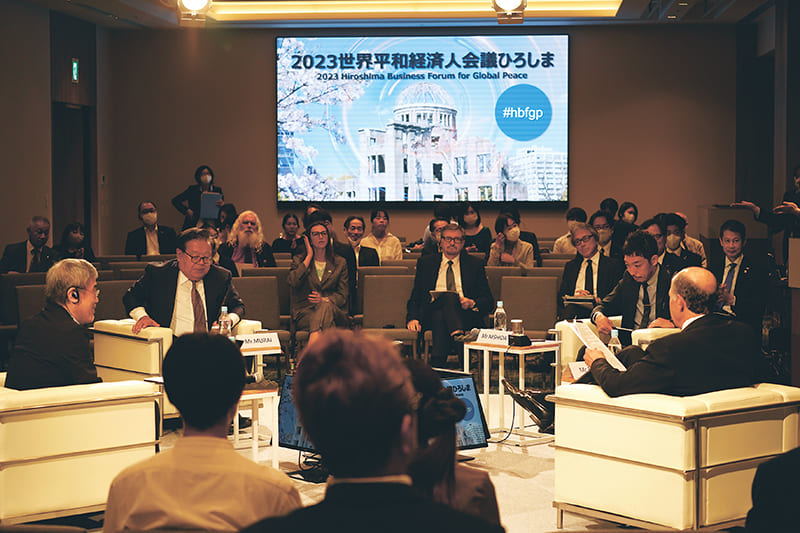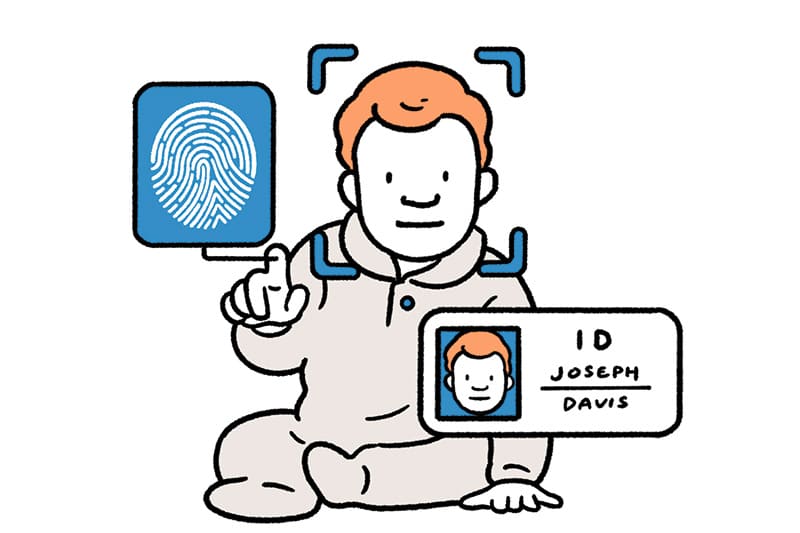April 21, 2023
Helping trustworthy data flow freely: Keio event
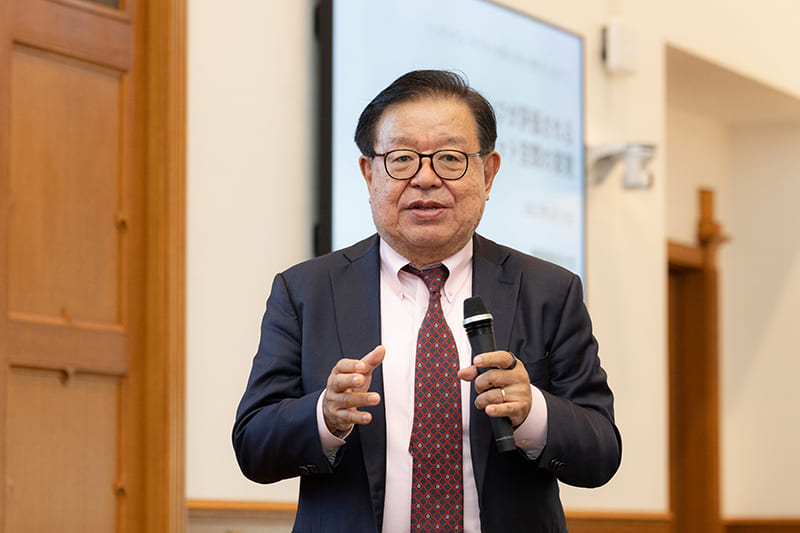
PHOTOS: HIROMICHI MATONO
Questions of trust are growing about online information and its sources. However, it is not for any one person to decide what is trustworthy and what isn’t in the ever-expanding data. More than ever before, enhancing people’s information literacy is needed.
To discuss how technology can help deal with this issue, a symposium gathered speakers from academia, the government and media at Keio University in Tokyo’s Minato Ward on April 10, organized by the Cyber Civilization Research Center at Keio’s Global Research Institute.
One of the keynote lectures was given by Satoshi Nohara, director-general of the Commerce and Information Policy Bureau at Japan’s Ministry of Economy, Trade and Industry, on the concept of “data free flow with trust” (DFFT) and the effort to promote this further at the upcoming Group of Seven summit in Hiroshima.
The concept was first proposed by then-Prime Minister Shinzo Abe at the World Economic Forum’s annual meeting in January 2019. Abe said it “should top the agenda in our new economy,” considering data as something that “connects and drives everything, helping to fill the gap between the rich and the less privileged.”
It was then discussed and received support at the Group of 20 summit in Osaka the following June and made it into the leaders’ declaration based on the common understanding that facilitating the free flow of data and strengthening consumer and business trust will help to harness the opportunities that the digital economy presents.
Nohara said that letting data flow across borders is indispensable for supporting economic growth, resolving social issues and providing opportunities for new innovations, while at the same time it is necessary to make efforts to prevent falsification, protect intellectual property and secure trust in sources. To achieve this, he said, an international system needs to be established, and “the Japanese government proposes to start from among nations that share similar values, such as the G7 states.”
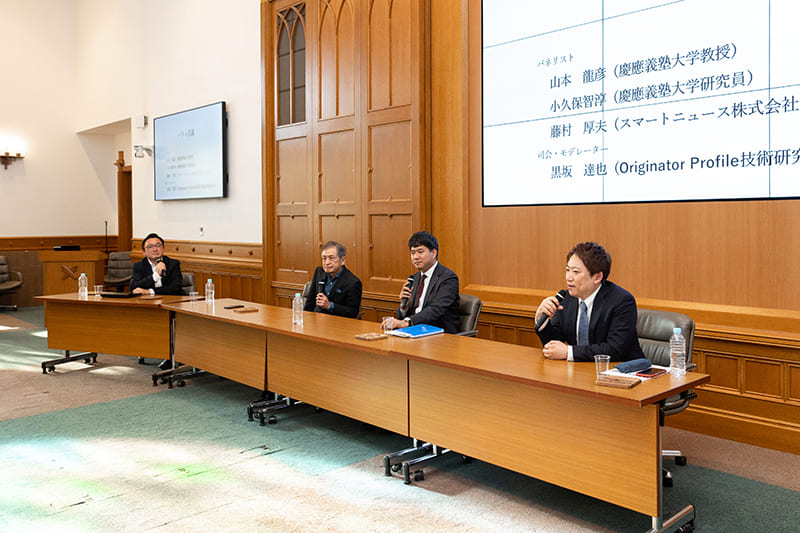
“We are aiming to reach an agreement at the G7 summit to establish the Institutional Arrangement for Partnership on DFFT, the first global system related to data,” Nohara said. He said some of the projects that the partnership will work on are summarizing and listing participating countries’ regulations and systems related to data security and protection, plus supporting technologies that ensure data quality, fact-checking and the keeping of records on alterations. He stressed that such efforts are necessary to protect companies from losing potential opportunities and suffering increased costs of compliance.
One of the technologies that may be useful in this regard is the Originator Profile technology, which would help confirm the identities of content providers and website operators, thereby reducing risks like getting fake or altered information or falling victim to ad fraud.
Keio University distinguished professor Jun Murai, an advocate of Originator Profile technology, said in his keynote lecture that the use of the internet and related new technologies expanded at an unexpected speed in the last three years due to the COVID-19 pandemic, and that advertising and media developed rapidly at the same time, creating some problems. “There is discussion in the world that something has to be done about this, and this is where OP can contribute,” Murai said.
He said the rapid advancement of JavaScript-based technology to provide various ad services has made the world of online advertising too complex, leaving room for abuse. “Sophisticated and complicated technologies tend to be abused. Simple technologies are easier to understand and have transparency, so they are harder to abuse.” Transparency is exactly what OP can provide, because it shows who the originator of a piece of content is.
Murai stressed the importance of the effort to internationally standardize this technology by implementing it on all major web browsers through the World Wide Web Consortium.
“I feel the expectation from the international community for Japan to create a good example of making good use of the internet in a real sense, and I believe that OP can help us meet the expectation,” he said.
The second half of the symposium was a panel discussion moderated by OP Technology Consortium Secretary-Genera Tatsuya Kurosaka. It featured three speakers: Atsuo Fujimura, a fellow at SmartNews Inc.; Masatoshi Kokubo, a researcher in the Graduate School of Law at Keio University; and Tatsuhiko Yamamoto, a professor at Keio University Law School.
Yamamoto, who specializes in constitutional and information law, shared his view that Originator Profile may be one of the more effective ways to solve the many problems caused by the online “attention economy.” He explained that the danger of the attention economy is that it prioritizes the kinds of information processed by “System 1” thinking, which is intuitive and instantaneous. “‘System 2’ thinking, which requires a lot of time and effort, is a must for the maintenance of democracy,” he said, noting the danger that excessive reliance on System 1 thinking may lead to short-sighted, simplistic speech and actions resulting in division and violence.
However, Fujimura, who has decades of experience in media and information technology, said it is not realistic to apply System 2 thinking to everything one sees on the internet ― you can’t think hard about everything ― and suggested that Originator Profile could contribute to the creation of a system that allows one to make a quick decision that is also a good choice, which is important from a business perspective.
Kokubo, who specializes in “neurolaw,” an interdisciplinary field that encompasses neuroscience and lawmaking, pointed to universal behaviors like addiction and novelty-seeking. “It means that people who become addicted to extremely unconventional and unusual information provided by fake news are not special. We all have the potential risk,” he said. He added that there is so much that science can reveal about human cognition now. “The field of neurolaw deals with the question of how to accept such scientific knowledge and technologies and use them to change laws or legal interpretations,” he said.
In addition to updating laws to catch up with modern science on how people think and can be manipulated, Yamamoto stressed the importance of enhancing people’s critical literacy as well as nurturing a market culture that adequately criticizes providers of malicious or manipulative information.
However, he also warned that trying to determine if a particular piece of information is wrong and then eliminate it is dangerous in terms of protecting diverse and free speech. He suggested that a kind of mechanism to “attach more prominence to trusted information, making it easier for people to access,” will be needed and that Originator Profile can potentially contribute to this. He said that just like food labels help people choose well, Originator Profile can put labels on information describing who created it, and how. “The right to know what information one is getting may become more and more important from the perspective of constitutional law as well,” he said.
Kurosaka concluded the session by saying that the insights gained through the discussion will help define potential problem points related to the Originator Profile technology, which is still under development.
The Originator Profile technology will be presented at the Digital and Tech Exhibition to be held from April 28 to 30 in Takasaki, Gunma Prefecture, where the meeting of G7 digital and technology ministers will take place.
データ・情報とその流通の健全性を守る
国をまたぐデータや情報の自由な流通が、これからの経済の発展には不可欠とされる反面、国ごとに異なる規制や、信頼性を欠く情報の氾濫など、課題も多い。これについて国際社会が協調して仕組みづくりに取り組むべきとし、2019年に日本が世界に向けて提案した「DFFT(Data Free Flow with Trust)」のコンセプトにもとづく動きをさらに加速させるべく、慶応大学にて産官学から登壇者を招き、シンポジウムが開催された。
シンポジウムでは、DFFTを支えうる技術のひとつとして「オリジネーター・プロファイル(OP)技術」が紹介され、コンテンツ提供者やサイト運営者のアイデンティティを明らかにすることができるこの技術がインターネット上の言論空間の健全化に貢献する可能性や、情報の受け手側のリテラシー向上の必要性、また人間の認知システムが科学の力で善用も悪用も可能になってきていることを受けて、データや情報の流通に関わる法律をどうアップデートしていくかについて活発な議論が交わされた。
Return to Sustainable Japan Magazine Vol. 23 article list page



